Alexis Pascaris, recent Environmental and Energy Policy MS graduate, was interviewed by PV Magazine on agrivoltaics as an alternative to large-scale solar. Read the article here.
Professor Emeritus Hugh Gorman’s book, “The Story of N: A Social History of the Nitrogen Cycle and the Challenge of Sustainability” was recommended by Five Books as one of the best books on the periodic table of elements.
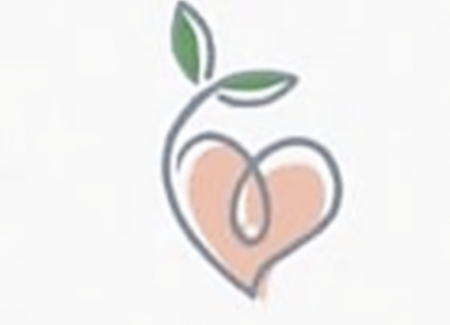
Introduction
My name is Savannah Obert-Pfeiffer and I am finishing up my second year at Michigan Tech as a Sustainability Science and Society major. I was interested in working with the Growing From The Heart project because I have seen first hand wasted garden goods. It is always heartbreaking to have to throw away, compost or toss to the animals all the produce that you’ve spent time to help grow. I also wanted to know more about the community of people in Houghton, finding people who are excited for the growing months and be able to grow a garden of my own this summer. It will be my first time in Houghton all year round and I am very excited for the growth to start.
Mission Statement and Last Year’s Report
Growing from the Heart is a grassroots initiative increasing access to fresh, local, and nourishing food grown by and for our friends and neighbors throughout the Western UP region. As we grow and redistribute food, we work together toward food sovereignty throughout our region. In 2020, the program reported sharing over 90.3 lbs of fresh produce. This included 21 different submitted reports of food sharing, 10 unique individuals have reported food sharing (20 people have signed up to be food sharers) and 3 unique pantries and to families/individuals. So far this year we have had feedback from 14 people in a pre-season interest form and 16 participants at two planning meetings.
Research Questions
For this second season of the program, I asked the following questions: How could Growing From the Heart work better in the future? How to structure drop-offs to be inclusive for community members? In what ways can community members work together to collectively supply more people with fresh food?
Findings/Recommendations
Most things were well received however more of the uncommon goods like swiss chard or squash, collard greens. Produce that a lot of people do not have experience with will turn them away; however, if little cards for ideas of how to cook or recipes went along with the produce more people would likely use it.
The pantries overall enjoyed the donations and considered having boxes or bins to store all of the donated produce. Some thought about people saving their extra boxes and using these when they drop-off fresh produce donations so that people coming to receive the pantry food could take home produce in a box. This way it could recycle the boxes, but also the idea of bins would work just as well to designate the drop-off spots.
There have also been a few meetings this spring to discuss the plans for the growing season of 2021. At these meetings there have been around 16 people each time, ranging all over the general area. Ironwood, Calumet, Lake Linden, Copper Harbor, Baraga, are a few examples; these are people that are students at Tech, graduates, faculty, and many community members not associated with Tech and crossing generations. The meetings are a diverse group of people that have a dedicated interest in growing food, which is all one can ask for.
What’s Next
As of April 2021, we are planning on having in-person meetings (wearing masks and socially distanced) over the growing season, to interact and exchange information or goods. There is a plan for a meeting in May to give compost out, make garden signs, and possibly swap plant starts. The goal is to incorporate everyone’s interests at some point. The details for the first meet-up in May are listed below:
- Saturday, May 15th from 1-3 pm at Chutes and Ladders Park. The group invites everyone to learn more about the program and to make “Growing from the Heart” garden signs. Supplies will be provided, though people are welcome to bring their own tools/scrap wood if they wish. A limited amount of compost will be available from the Sustainability Demonstration House for people to take home (please bring own containers).
Potential future meet-up ideas are listed below and dates will be scheduled soon:
- June Meet-up: Host a free school (people show up and share / teach each other about a subject) in the community 1x or 2x a month to engage with the community, for example seed stories, transplants, and connecting to trade things other than produce, fish, meat, dairy, grains.
- July Meet-up: Free workshops and getting together to preserve the food.
- August Meet-up: Seed saving tips and tricks, this way people can donate back into the Portage Lake Seed Library.
Savannah Obert-Pfeiffer will start her 3rd year as a Sustainability Science and Society major in Fall 2021. She completed work with the Growing from the Heart program as part of a Spring 2021 SS Undergraduate Program for Exploration and Research in Social Sciences under the supervision of Dr. Angie Carter (MTU Social Sciences).
by Maya Klanderman
The Portage Lake Seed Library is a new addition within the Portage Lake District Library in Houghton, MI this growing season. Seed libraries are grassroot initiatives focused on enriching the gardening community by encouraging seed saving and swapping. Novice or expert gardeners are provided with a low-risk way to try something new by using seed libraries. Using native, non GMO seeds, seed libraries provide free seeds to the public for gardening purposes.
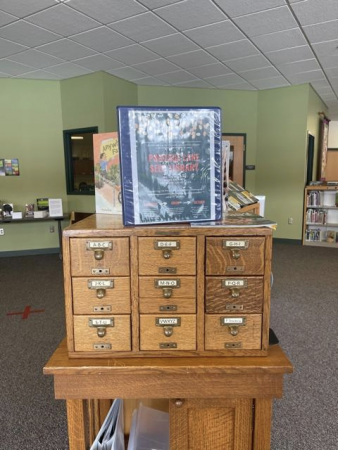
The seed library is situated near the new books section, towards the front of Portage Lake District Library. It is easily accessible and open to anyone who wants to check out seeds for the 2021 growing season.
The seed library hosts multiple varieties of seeds, including flowers. These seeds are from local growers and donations to the seed library. All of these seeds are suitable for growing in the Keweenaw.
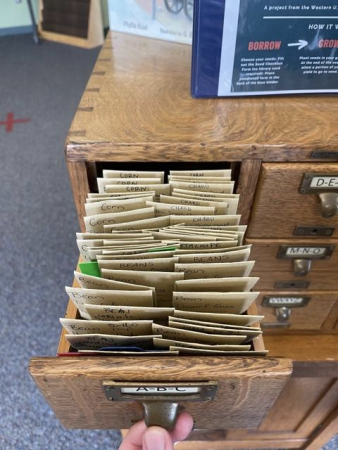
There is a binder situated on top of the seed library which holds documents needed to check out seeds as well as additional information about seed saving. Patrons can then take the seeds, plant them, harvest, and collect a portion of the seeds to donate back to the seed library in the fall. You do not need to be a member of the library to donate or check out seeds.
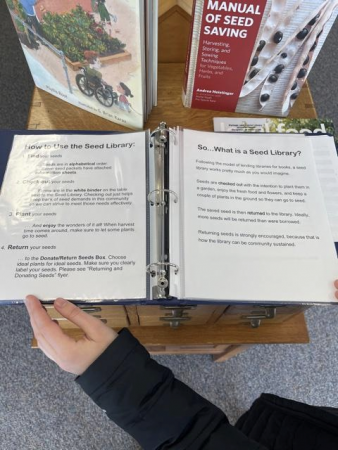
If you have any questions feel free to contact us at our email address PortageSeedLibrary@gmail.com.There will be more information available as the fall and winter season nears as to how seed donations will be accepted back to the seed library. Additional information and resources can be found on the Portage Lake District Library website. Happy seed saving!
Maya Klanderman will start her 2nd year as a Sustainability Science and Society major in Fall 2021. She completed work with the Portage Lake Seed Library as part of a Spring 2021 SS Undergraduate Program for Exploration and Research in Social Sciences under the supervision of Dr. Angie Carter and Rachael Pressley (Portage Lake Seed Library).
The undergraduate committee of the Department of Social Sciences is pleased to announce the recipients of this year’s departmental awards. Thanks to all who nominated students and provided letters of support. Congratulations to this year’s winners:
Outstanding Senior: Tim Stone
The Department of Social Sciences Outstanding Senior Award recognizes outstanding undergraduate achievement in accomplishments in academics, research, leadership, and/or service.
Undergraduate Research: Alannah Woodring, Madelina Dilisi
The Undergraduate Thesis or Research Awards recognizes one Social Sciences graduating senior and one junior for their exemplary research, as evidenced in an undergraduate thesis, original research, or creative project under the guidance of department faculty members or other mentors. The awardees are recognized for research that is original and substantive given the standards of the discipline.
Community-Based Research: Kat Dvorak, Savannah Obert-Pfeiffer
The Community-Based Research Prize recognizes a Social Science student who is actively engaged in community-based research, a pillar of the department’s mission. The prize honor’s the student’s efforts to enhance community capacity, build relationships, and/or support community participation in research.
Shan Zhou (SS) presented her paper “The Interplay between Renewable Portfolio Standard and Voluntary Green Power Market in the United States” in the session “Determinants and Challenges of Environmental Policy” at the the 78th Annual Midwest Political Science Association (MPSA) Conference, which was held virtually April 14-18.
This paper evaluates the efficacy of utility-based voluntary green power programs implemented in conjunction with government-led (mandatory) renewable energy policies.
Congratulations to all four of the Social Science majors who presented their work in this year’s Undergraduate Research Symposium!
Brooke Batterson (History) “Analysis of the Labor Market & Landscape of 1900 Lake Linden French Canadians”
Tim Stone (Sustainability Science and Society): “The Daily Spaces and Environmental Hazards for Youth in the Industrial City”
Alannah Woodring (Sustainability Science and Society): “What Are the Best Practices to Integrate Therapy Gardens into Programs Servings At Risk Populations?”
Ava Miller (Sustainability Science and Society): “Community Response to Renewable Energy Project Siting: A Case Study in L’Anse, MI”
And special congratulations to Ava Miller whose project tied for the second place award as “best undergraduate presentation” among all undergraduate presentations!
Energy and Environmental Policy graduate student Alexis Pascaris (SS) coauthored an article with Chelsea Schelly (SS) and Joshua Pearce (MSE/ECE) titled “Integrating solar energy with agriculture: Industry perspectives on the market, community, and socio-political dimensions of agrivoltaics,” in Energy Research & Social Science.
In collaboration with a class taught by Angie Carter (SS), the Western Upper Peninsula Food Systems Collaborative (WUPFSC) kicked off the Western UP Food Stories Photo Contest last fall.
The students in the course — Communities and Research SS4700 — reached out to local growers, enthusiasts, and anyone who eats to share what local foods in the Keweenaw means to them. Since a picture is worth 1,000 words, they encouraged community members to share their experiences in a visual format.
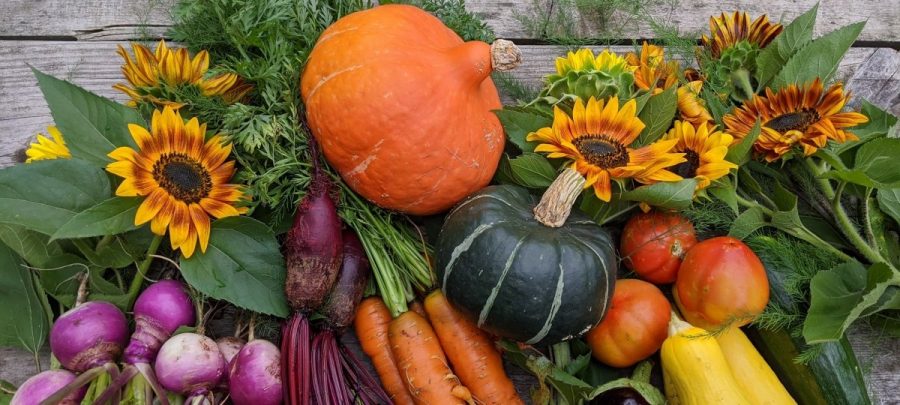
The course, which is based on transdisciplinary research methods, supports students in creating studies driven by needs identified from community members to ensure that their research would directly serve and empower the community.
The class gathered all the photos on Flickr and some of the winning images are gathered on the University research blog, Unscripted. Check them out at mtu.edu/unscripted . (By Allison Mills, University Marketing and Communications)
Chelsea Schelly (SS), PhD student Don Lee (EEP PhD student), Michigan Utility Consumer Participation Board Member Elise Matz, and Joshua M. Pearce (MSE/ECE) have published “Applying a Relationally and Socially Embedded Decision Framework to Solar Photovoltaic Adoption: A Conceptual Exploration” in Sustainability.